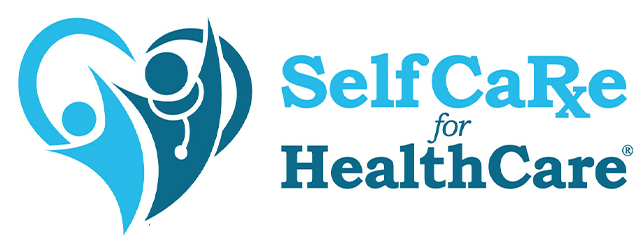Welcome to the SelfCare for HealthCare blog! Here we’ll be posting articles and information surrounding the realms of healthcare and nursing. We’ll cover tips to stay positive, statistics encompassing the healthcare profession, news about the modern nursing world, and much more. So stay posted to learn the latest from SelfCare for HealthCare! We’re proud to be your source for nurse recruitment and retention strategies, and we’re ecstatic to improve the nursing industry and the lives of nurses around the globe.
Today, to kick off our blog feed, we’re going to talk about your personal health – not the health of patients that surround you. After all (and as every nurse knows), your health is all that you have. That’s why it’s so crucial to support your own health, as well as your patients’ health. Making a conscious effort to improve your own health can lead to a happier lifestyle, a better mood, and a more fulfilling career. Let’s dig into some of the best techniques you can employ to improve your health:
Your Diet
The old adage is true: You are what you eat. When you eat healthy food, you are healthy. When you eat junk food… well, you’re not junk… but you aren’t at your best either. It’s important to fuel the mind and the body. The proper diet gives you energy. It keeps you from falling ill. It improves your mood. It gives you clarity. The right diet includes the right amount of food, the right types of food, and eating food the right way.
Eat the Right Amount
Simply put, don’t overeat, and don’t overeat.
If you can’t get enough calories and can’t support a healthy weight, it’s time to adjust your diet. Make sure that you schedule out time to eat meals throughout the day, and fill your diet with hearty, healthy foods.
If you’re eating too much, then again, it’s time to take a look at your consumption schedule. Refrain from snacking all the time, and if you do decide to snack, have healthy snacks on hand. Opt for fruits and veggies, rice cakes, and the like. Monitor the amount of calories that you’re consuming, and make sure that you get your caloric intake from healthy sources.
Talk to a nutritionist to formulate a diet that’s perfectly suited to your body type and lifestyle.
 Eat the Right Stuff
Eat the Right Stuff
Eating the right stuff may not be the easiest thing to do. How often are we offered a slice of pizza? How often are we tempted with a donut or a bear claw alongside our daily coffee? How convenient is that drive-thru on the way to work? Eating the right stuff takes self-control and it takes planning, but it pays off in the long run. Fill your fridge, freezer, and pantry with fresh, tasty, healthy goodies and ingredients. Invest in a health-themed cookbook, and try out new meals. Keep healthy snacks on-hand whenever possible. Make an effort to plan out your meals for the week (or month), you’re far more likely to keep to that schedule. Again, consult a nutritionist if you’re looking to learn the best foods to keep you at the height of health.
Eat the Right Way
Don’t gorge on food. Don’t be the constant snacker. Take time to enjoy your meals. Be conscious and aware of what you eat and how quickly you eat it. Chew. Breathe. When you’re working a ten or twelve-hour shift, be sure to set aside time to sit down and eat. Try to remove distractions from the equation as best as you can. Turn off the tele. Set down the smartphone. And grab a few friends for some conversation.
Again, eat slowly. Be sure to chew thoroughly and breathe while you eat (between bites, of course!). Inviting friends to the table can further encourage you to slow down your eating. Since your stomach can feel full after about 20 minutes of eating, slowing your eating can aid you in eating less, and that can be an useful tool for those who overeat. Slower eating is healthier for all because it’s less stressful on the digestive tract and it can reduce stress.
 Exercise
Exercise
Our bodies are built to move. Now, as nurses, we’re on our feet all the time, and that’s actually great (as long as we have sturdy footwear)! We walk all the time, and walking does wonders for the body. However, it’s important to get the heart pumping once in awhile, and it’s important to keep our muscle strength high. Try to hit the gym for a few strength and/or cardio workouts per week, and keep it to a low-impact exercise if your legs and feet are achy at the end of the day.
Your Mental Health
Care-taking and the career of nursing are demanding on the mind. A day at the hospital can mean back-to-back hours of on-your-feet work. And while we treat and care for patients, we often forget to care for ourselves. That’s so important! We need to care for ourselves to continually provide quality care for others, and that means caring for our mental health as well as our physical health. Maintain your social life, strive to be mindful throughout your day-to-day, and get rest to ensure that you maintain a balanced mind.
Socializing
Don’t forget the importance of friends and family, and embrace your daily interactions with your coworkers. Humans are social creatures, and we thrive on sharing our lives with others. Plus, our friends support us and bring meaning to life. Make your relationships a priority in your life (but build in some “me-time” too). You can schedule a weekly hangout time, join a book club, or do whatever you’d like as you enjoy the company of others.
Mindfulness
Changing your mental state starts with mindfulness. Strive to be aware of how you feel. Keep an eye out for tension and stress. Be mindful of a bad mood. Try to be aware of events that trigger a shift in your mood. Next, make an effort to control the direction of your emotions. If you’re stressed, ask yourself what’s causing this stress, and address those issues. If you’re angry, ask yourself what angers you, and resolve it. Assess your state of mind, be mindful, and practice overcoming bad moods in the pursuit of positivity.
 Rest
Rest
Rest is so important for those of us in the nursing field. We’re often committed to long shifts and back-to-back work days. That makes it more important than ever to rest enough to be refreshed for a brand new day. For some of us, sleep is easy. You work a full day, and there’s nothing that sounds better than a pillow and a feather-top mattress at the end of the tunnel. For the rest of us, we need to be smart about sleep.
Schedule time to sleep and stick to it! Make your bedroom is an area that’s free from distraction (TV, computers, bright lights, noises, etc.), and let others in your life know your sleep schedule. If you have trouble sleeping, reconsider your diet and exercise routine, and analyze the thoughts that are keeping your mind from attaining rest. You may also try reading a book before bed, drinking a glass of milk, or meditation for sleep, a technique that aids in guiding your mind into sleep. Some people sleep better with a little constant white noise (like the whirring of a fan). If you have to sleep during the day (a common occurrence here in the nursing field), invest in some blinds and curtains to block out the light of the sun.
Care for yourself! That’s our message here at SelfCare for HealthCare. It’s so important for nurses to care for themselves in such a demanding industry. We hope to further help you care for yourself with tips and information in upcoming blogs, so stay posted! Count on us for nurse retention, recruiting, and satisfaction strategies!




